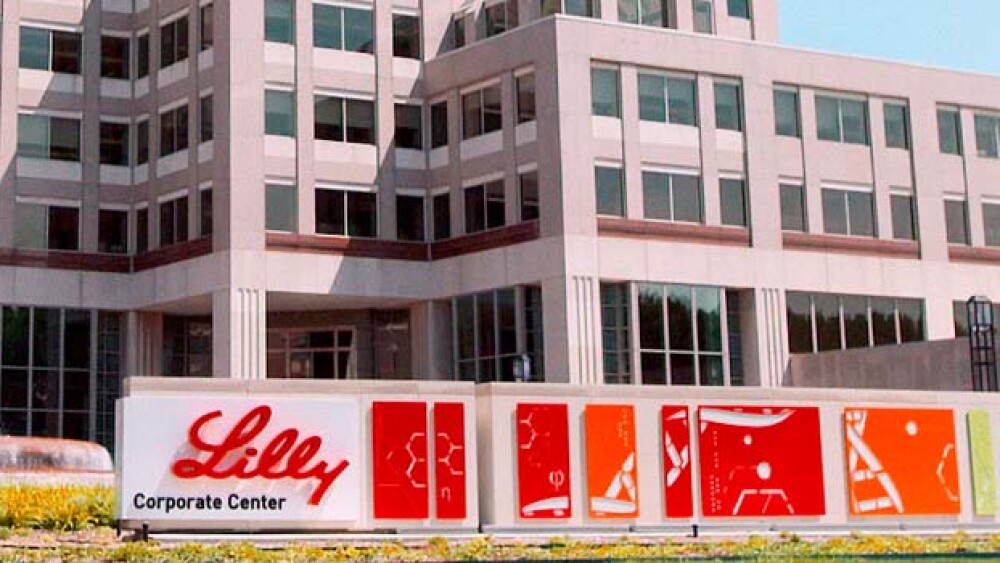The drug was approved as a second-line treatment for HCC patients who have an alpha-fetoprotein biomarker.
Eli Lilly snagged regulatory approval for Cyramza as a single agent for the second-line treatment of patients with hepatocellular carcinoma (HCC) who have an alpha-fetoprotein (AFP) and have previously been treated with sorafenib.
This latest approval marks the fifth for Cyramza, a vascular endothelial growth factor (VEGF) Receptor 2 antagonist that binds and blocks activation of VEGF Receptor 2. Indianapolis-based Eli Lilly won approval based on results from the REACH-2 study, the first positive Phase III HCC trial in a biomarker-selected patient population. AFP is a prognostic biomarker that can be determined through a simple blood test, which can then be used by doctors to determine if treatment with Cyramza is appropriate for HCC patients. HCC is the most common form of liver cancer, which is the fourth-leading cause of cancer-related death worldwide. Approximately half of all advanced HCC patients are AFP-High, and these patients are among those with the poorest prognosis relative to the general HCC patient population.
Anne White, president of Lilly Oncology, said the latest approval for Cyramza reinforces the company’s ongoing commitment to “delivering meaningful medicines that are tailored for people with advanced cancers.”
In the Phase III REACH-2 trial, Cyramza showed a statistically significant benefit in the primary endpoint of overall survival (OS) and in the secondary endpoint of progression-free survival (PFS). Results showed that treatment with Cyramza significantly improved the OS of patients compared to placebo. Median OS was 8.5 months with Cyramza compared to 7.3 months with placebo. For the secondary endpoints, median PFS was improved with Cyramza to 2.8 months compared to 1.6 months for placebo. Objective response rate was numerically higher with Cyramza compared to placebo, 4.6 percent vs. 1.1 percent, Eli Lilly said. The company also noted that disease control was higher with Cyramza than placebo, 59.9 percent compared to 38.9 percent.
With the fifth approval for Cyramza, Lilly said the U.S. Food and Drug Administration (FDA) removed the boxed warning from the drug’s label. The warning had been in place to mark the possibility of hemorrhage, gastrointestinal perforation and impaired wound healing.
Andrew X. Zhu, director of Liver Cancer Research at Massachusetts General Hospital Cancer Center and principal investigator of the REACH-2 trial, said the FDA approval is an important step forward in the treatment of HCC. Zhu said there are still limited treatment options for this liver cancer and, until the approval of Cyramza for this indication, there were no treatment options specifically aimed at patients with increased alpha-fetoprotein concentrations. Zhu noted that the patients with this indication typically had a more aggressive type of cancer and had a poorer prognosis with increased angiogenesis.
In addition to HCC, Cyramza could also be approved as a treatment for patients with metastatic non-small cell lung cancer whose tumors have activating EGFR mutations. In March the company announced that Cyramza met its primary endpoint of progression-free survival in patients with this type of lung cancer. The drug demonstrated a statistically significant improvement in the time patients lived without their cancer growing or spreading after starting treatment, Eli Lilly said.





